
Requirements & Further Detail
Competition Key Dates:
18th Nov 2022: Registration open
16th April 2023: Submission deadline
8th May 2023: Announcement of the finalists
15th-21 May 2023: Online finals, in which the finalists will be required to deliver a presentation about their essay to the judge
26th May 2023: Announcement of the prize winners
July-August 2023: Award Ceremony held in Cambridge, date to be confirmed
Entry Requirements
1. Entry is open to students from any country.
2. Participants should be younger than 18 years old (including 18 years old) on the date of the submission deadline (16th April 2023)
3. The essay should not exceed 2000 words for the main context (not counting figures, tables, bibliography, etc.). Crafting a good essay requires careful argumentation, clear structure and originality. It is this set of characteristics that we will look for when judging applicants’ essays.
Scholarships
There will be First Place, Second Place, and Third Place for each subject. They will be awarded a scholarship towards the cost of attending any CCISTC Summer Research or Online Research programmes:
First Place: £2000 worth of scholarship towards the cost of attending CCISTC programmes
Second Place: £1000 worth of scholarship towards the cost of attending CCISTC programmes
Third Place: £500 worth of scholarship towards the cost of attending CCISTC programmes
All finalists will be invited to attend the Award Ceremony and Dinner in Cambridge. Further details will be announced closer to the dates.
We would consider organising an online ceremony for finalists who could not visit Cambridge in person for the Award Ceremony.
Please submit your work in PDF Format.
Essay Competition Terms & Conditions:
Participants should be younger than 18 years old (including 18 years old) on the date of the submission deadline (16th April 2023)
The student must complete the essays independently – they must be original, non-plagiarised work.
The final decision on finalists and prize winners rests with CCISTC. By submitting an entry, the student agrees to respect and honour the decision made by CCISTC. Due to the number of entries received, no correspondence will be entered into.
The student agrees to assist with promoting the essay competition scheme if awarded a prize.
The finalists and prize winners agree to their names being published on CCSITC websites, as well as on its social media platforms.
The essay competition scholarships could only be used towards the cost of attending any CCISTC summer or online research programmes, and they cannot be redeemed for cash. The scholarship is valid for two years from the date of announcement of the awards.
The student must have permission from a parent or guardian to join the essay competition.
Students do not have to pay a fee for entering the essay competition.
Please note that all terms and conditions for CCSITC programmes, including the cancellation policy, also apply to scholarship recipients.

THE QUEEN'S COMMONWEALTH ESSAY COMPETITION
Since 1883, we have delivered The Queen's Commonwealth Essay Competition, the world's oldest international schools' writing competition. Today, we work to expand its reach, providing life-changing opportunities for young people around the world.

MEET THE WINNERS
In 2023 we were delighted to receive a record-breaking 34,924 entries, with winners from India and Malaysia. Read their winning pieces as well as those from previous years.

140 years of The Queen’s Commonwealth Essay Competition
The Queen’s Commonwealth Essay Competition (QCEC) is the world’s oldest international writing competition for schools and has been proudly delivered by the Royal Commonwealth Society since 1883.

ABOUT THE COMPETITION
An opportunity for young Commonwealth citizens to share their thoughts, ideas and experiences on key global issues and have their hard work and achievement celebrated internationally.
The Nottingham-World Bank Economics Essay Competition
Winning article.
- The Nottingham-World Bank Economics Essay Competition 2021 asked, “What would be the economic consequences for Malaysia if technology replaces 50% of current jobs in the country? Who would benefit, and who would lose? Would we be better off ultimately?”
- The Competition is open to all pre-university in Malaysia.
- Published below is the Grand Prize written by Gwendolyn Chan Hui Pei from SMK Batu Lintang, Kuching.
Technology: Killer or Saviour? By Gwendolyn Chan Hui Pei, SMK Batu Lintang, Kuching
Kiva robots. That’s the name of Amazon’s “holiday workers” in a warehouse located in Tracy, California. Kiva robots are like orange suitcases on wheels that makes the shelves in warehouses come to you. More than 3000 of these robots cruise Amazon’s warehouse floors in California, helping employees complete millions of orders. Before Kiva robots, Amazon workers had to comb through warehouse aisles just to find certain products to complete shipments. Now, workers just stay on platforms while the robots bring the shelves with the items directly to them. These 320-pound robots can lift up to more than 2 times their weight, has motion sensors to detect objects in their way and can travel at 3-4 miles per hour. The robot’s small footprint allows it to fit up to 50% more inventory in the warehouses while simultaneously increasing efficiency up to 20%, filling orders in 15 instead of 90 minutes. Many worry about the jobs taken away from them by these robots, however this was not Amazon’s intention. But still, can we deny the number of workers these robots have replaced?
Applied technology can be evidently traced back to as early as the pre-16th century. In ancient Greece and Rome, many free workers became jobless due to simple ancient Greek technology in that period such as gears, screws, rotaries and mills. To overcome this, leaders in that era launched many public works such as infrastructure projects and recreational projects financed by the government to create jobs for the people. Some rulers go to the extent of refusing or banning new inventions and innovations to save labour costs. Emperor Vespasian, a Roman emperor rejected a new method of cost-effective transportation of heavy merchandise saying: "You must allow my poor hauliers to earn their bread." In the medieval and renaissance period, European authorities often sided with “guilds” or the majority of the working population and proceeded to refuse or ban new technologies. The constant dilemma of whether to adopt new technology can be seen in the 16th-18th century in Great Britain. The effect of innovation on employment became a concern which can be evidently seen when Queen Elizabeth I declined to issue a patent for a knitting machine invented by an English clergyman called William Lee on the account that it might cause the layoff of textile workers.
In the 19th century, many controversies and debates over technological unemployment arose. David Ricardo, a British political economist voiced his opinion on the implementation of technology and believing that it is often very injurious and harmful for workers when people substitute machine for human jobs. While many other economists supported his stand, a French economist named Jean Baptiste Say was the first to respond to Ricardo’s argument saying that machinery does not compete with labour, and society would be better off because of the increased productivity. Say mentioned that a new machine supersedes a portion of labour of a human worker, but does not reduce the amount of product, saying that it would be absurd to adopt it if it did. At that time, water carriers were relieved of duty due to the introduction of the hydraulic engine. Say could not deny the problem and recognised that the water carriers were still unemployed. Therefore, he believed that 3 factors would considerably alleviate the detrimental effects of unemployment:
- New machines are gradually created and still more gradually brought into use, giving those who are affected time to adjust.
- Machines cannot be created without the input of considerable human labour, which can create jobs for some workers even as machinery may put others out of work.
- The circumstances of consumers, including workers affected by the replacement with machinery, is improved by the lower prices of consumer products. [Adapted and paraphrased from Bruce Bartlett (1984) Cato Journal, vol. 4(2), pages 625-650]
How would replacing 50% of the current jobs with technology look like for Malaysia, a developing country? Firstly, the controversial problem still remains - workers in Malaysia would be susceptible to technological unemployment or tech layoff. Figure 1 below depicts Malaysian jobs at risk of automation. With AI (Artificial intelligence) on the rise, and automation replacing jobs, semi-skilled and low skilled workers are at a high risk of losing their jobs. 90% of semi- skilled jobs such as support workers and salespeople consist of Malaysians and 4 out of 5 jobs at high risk of displacement are semi-skilled jobs as compared to low-skilled jobs. Although Malaysia heavily depends on low-skill foreign labour especially in manufacturing and industrial sectors and there is a possibility of the replacement with technology reducing our reliance on it, the probability of Malaysians being put out of their jobs is higher, leaving a large figure of Malaysian workers unemployed. This is because most blue-collared jobs are highly susceptible to automation and ironically, a large portion of those positions are held by Malaysians. This might cause Malaysians to switch to lower pay jobs or not being employed at all. The sosio-economy of Malaysians would be under immense pressure. Unemployed Malaysian workers would have to suffer a lower standard of life. Occupations that are routine based and have many manual tasks are more susceptible to replacement by technology as compared to jobs that are non-routined and require high cognitive skills. At the end of the day, although our economy may be growing due to rise in productivity and lower price in the long term, the wellness of our own Malaysian citizens may be neglected in the short term.
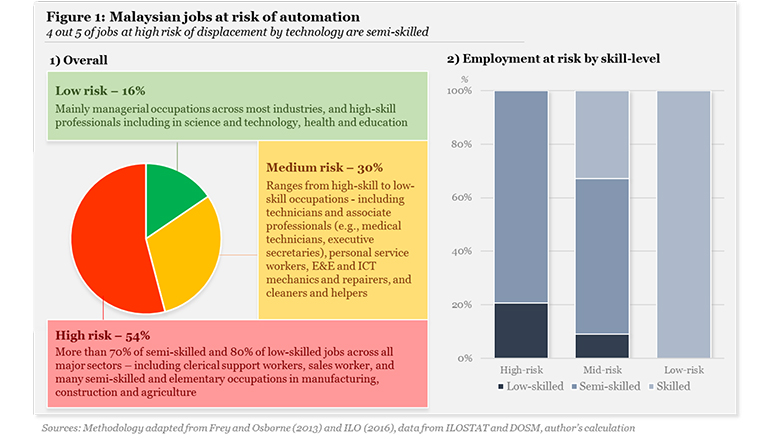
Source: Methodology adapted from Frey and Osborne (2013) and ILO (2016) data from ILOSTAT and DOSM, author’s calculation [Adapted from The Times They Are A-Changin’: Technology, Employment, and the Malaysian Economy by Allen Ng, Khazanah Research Institute ]
Not only are the welfare of Malaysians put at risk, but also the scale of the economic equality in Malaysia will be tipped. With the replacement of workers with technology, companies that adopt labour-saving technologies will monopoly the industries. Some firms have exclusive rights to methods of manufacturing products causing smaller firms to lose out in competitiveness because of higher cost-per-unit. This will cause a great difference in terms of income among high skilled workers and technology owners versus semi-skilled and low skilled workers. A greater inequality of wages within occupations will arise as only certain workers have the skills needed for certain jobs. Skills that are hard to acquire in the technological field also can cause wages to be unequal. On top of that, income inequality may result in a higher rate of health problems and social problems.
On another note, replacement of human labour with technology will cause Malaysia to face a massive restructuring in different sectors in the economy. As higher productivity with new technology lowers prices of goods and opens new sectors to be explored, new labour demand will be created in certain sectors. The demand for jobs will switch from manufacturing sectors to services in the future, just like how the demand for jobs switched from agricultural sectors to manufacturing sectors in the late 90s in Malaysia. The chart below depicts the change in share of jobs by sector, recording the construction with the highest share and the manufacturing sector a negative figure. An increasing proportion of jobs require at least a college level certificate if not advanced degrees. This proves the need for Malaysians to upgrade their skill levels to be qualified and to keep up with the times.
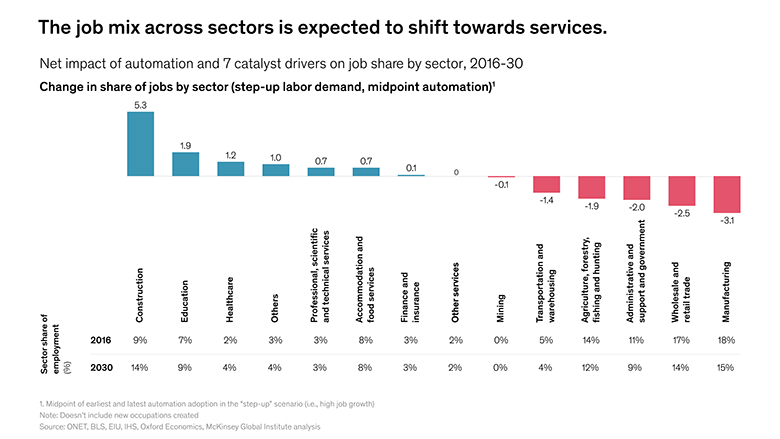
Figure 2: Change in share of jobs by sector
Source: ONET, BLS, EIU, HIS, Oxford Economics, McKinsey Global Institute analysis [Adapted from Automation and adaptability: How Malaysia can navigate the future of work (2020) ]
In conjunction with creating new demand in the labour force across different sectors in Malaysia, the substitution of jobs with technology can possibly add more value to occupations with the human element, making jobs that require human interaction more valuable. For example, when Automated Teller Machines were first created to automate simple tasks such as simple transactions and deposits, the remaining tasks that cannot be automated became more valuable. Bank tellers became people who form personal relationships with the customers and can sell them financial services at a high margin.
On the flip side, wealth distribution becomes an uprising problem as not everyone is given a fair share even with increased productivity and lower cost. Advancement in various sectors may result in a digital divide between different regions and demographics. Urban areas may continue to advance whereas rural areas which are neglected continue to deteriorate in terms of technological advancements because of the failure of implementation of technology as a whole. Areas that have limited access lack the resources to advance in technology. This may possibly create a wider gap between regions and races socially and in terms of progress and cause an increase in poverty among different races in Malaysia.
However, we cannot deny the possibility of Malaysia flourishing with the implementation of technology. In the 1990s the Malaysian government has always put a priority in making Malaysia an industrialized country with the 7th prime minister, Tun Dr Mahathir Mohamad launching Wawasan 2020. Since then, many efforts have been made in increasing Malaysia’s use of technology in different sectors. Though the replacement of jobs with technology might upset the labour force and possibly obsolete the field of manual labour in certain sectors in the short term, the demand for labour force in other trades will significantly increase in the long term. Increased production would increase supply, lowering the general cost of items, increasing the national dividend thus increasing our competitiveness in the global market. With time, a new demand of labour will be created placing new, skilled workers in those fields. Economic growth as a whole can be accelerated.
Technology replacing 50% of jobs also create high income jobs or increases the wages of existing workers that are involved in the field of technology but also widen existing income inequality at the same time. According to a study by Justin Lim, Kevin Wong, Rosaida Mohd Rasep and Sonia Kumari Selvarajan (2018), wages per worker in the ICT industry has risen proportionately from RM38,274 per annum to RM53097 per annum in 2015 whereas wages of workers in the non-ICT industry only rose by RM6150 in the course of 5 years. Because workers in the ICT industry comprise of a small share of the total labour force and small employment growth, the wage disparity between non-ICT workers and ICT workers has been widening and would likely continue to widen even more over time.

Figure 3: Wage per worker of ICT vs non-ICT Industry
Source: DOSM ICT Satellite Account, GDP by Income Approach, authors calculations [Adapted from Wage premiums in the digital economy: Evidence from Malaysia (2018) ]
With new technology being constructed, Malaysia can explore the possibility of taxing new technology or “robot taxes”. According to The Telegraph, Bill Gates even voiced out the opinion that robots that take away jobs from humans should be taxed, which can make up for income taxes from workers that lost jobs. This could slow down the speed of automation and its negative effects on the labour force. In August 2017, South Korea became the first to introduce the world’s first tax on robots by cutting tax incentives for investments to boost productivity. If 50% of jobs were to be replaced, taxes on technology could increase the country’s income and improve the citizen’s standard of life by giving back to the people, increasing economic development through new infrastructure digitally and physically.
In general, technology replacing 50% of jobs in Malaysia benefits most of the stakeholders in the long run and has the potential to generate economic wealth for Malaysia. New innovations and technology are churned out on a daily basis due to globalization. To be able to compete in the global market, Malaysia has to keep up with the times and take bold steps in adopting new technology in various sectors. Though there is a possibility of technology replacing human jobs, nothing beats the value of a human’s touch. To dampen the adverse side effects of replacing human workers with technology, policy makers need to create new alternatives in helping displaced workers readjust to new sectors and work environments. As for Malaysian citizens, we must not stand by the side lines idly, but instead hop on the wagon of change. Being active players in the labour force, we must not take the importance of education (especially in the field of technology) lightly and sharpen our sword of education thus increasing our skills. Only with technological intelligence can we as Malaysians stand out in the global market as drivers of change, standing out amongst nations that are technologically advanced.
This site uses cookies to optimize functionality and give you the best possible experience. If you continue to navigate this website beyond this page, cookies will be placed on your browser. To learn more about cookies, click here .
- Undergraduate
- Short Courses
- Online Courses
- Masters/Postgraduate
- Postdoctoral
- Study in Africa
- Study in Asia
- Study in Australia
- Study in Europe
- Study in USA
- Fellowships
- Internships
- Volunteering
- OD Live Series
- Young Person of the Month
- Success Stories
- General Tips
- ODIC 2023 Application
- ODIC Judges
- ODIC 2022 Winners
- ODIC 2021 Winners
- ODIC 2019 Winners
- ODIC 2018 Winners
- ODIC 2017 Winners
- ODIC 2016 Winners
- Australia and Oceania

St. Gallen Symposium Global Essay Competition 2024 (CHF 20,000 prize)
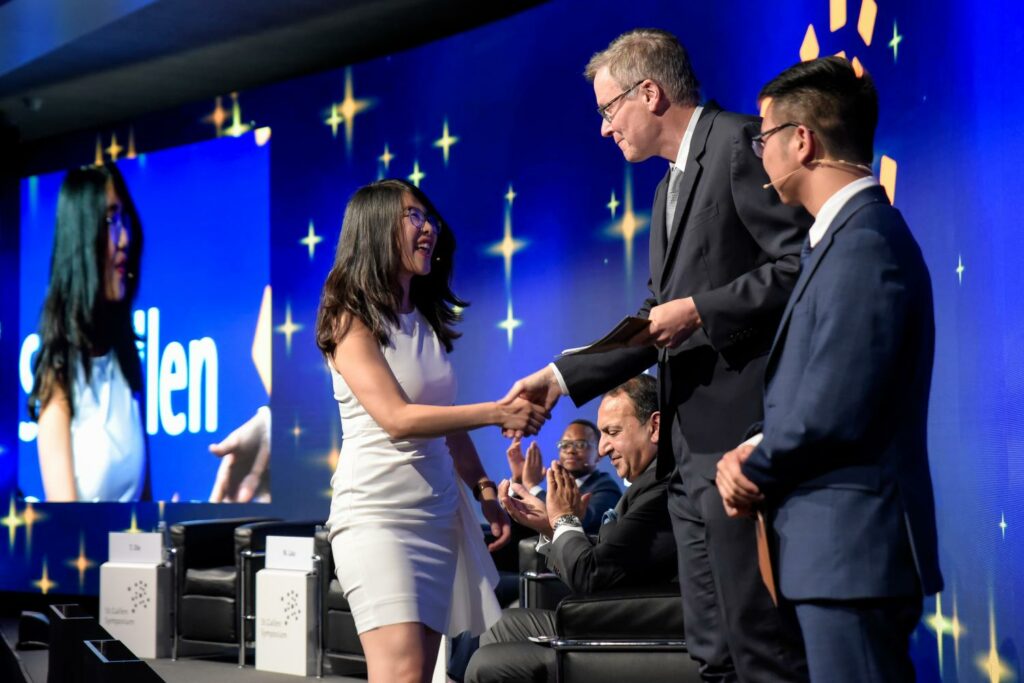
Deadline: February 1, 2024
Applications are open for the St. Gallen Symposium Global Essay Competition 2024 . Compete in the Global Essay Competition and qualify for participation as a Leader of Tomorrow in the world’s premier opportunity for cross-generational debates: The St. Gallen Symposium.
Meet 300 of society’s brightest young minds. Present and debate your ideas with 600 senior leaders. Be inspired by some of the world’s most impressive speakers. Gain a unique and new perspective on this year’s topic. Become a member of a unique global community. Participate in the symposium.
Topic Question : Striving for more or thriving with less – What pressing scarcity do you see, and how do you suggest to tackle it?
Scarcity generally refers to a situation where human needs exceed available resources. This year’s Global Essay Competition invites young leaders worldwide to focus on a specific contemporary or future challenge related to scarcity and propose an innovative way to address it.
Be creative in thinking about proposed solutions: do we need to strive for more and find ways to boost the availability of the resource in question? Or does it focus on ways to thrive with less and thus rethink our needs and demand?
Be free in choosing which scarce resource you focus on: examples include – but are NOT limited to – human labour, capital, natural resources, or intangibles like time, creativity, or care. Be bold and precise in describing a contemporary or future challenge of scarcity and the specific kind of resources you focus on and offer a concrete and actionable idea of how we should confront it.
- Win prize money of CHF 20,000 split amongst the three winners.
Eligibility
- Be enrolled in a graduate or postgraduate programme (master level or higher) in any field of study at a regular university;
- Born in 1994 or later.
Selection Criteria
For your contribution to be valid, the following criteria must be met:
- Be in Essay form (max. 2,100 words, excl. abstract, bibliography, and footnotes)
- Your name, e-mail address, university, or any identifying details must not be mentioned anywhere in the contribution file.
- Individual work expected, no group work allowed. The essay must be written exclusively for this contest. The idea must be the author’s own.
- All sources must be cited and referred to the respective part in the essay. All contributions will be tested for plagiarism.
- Acceptable language is English.
Application
Make sure you can provide the following documents:
- Copy of passport or other identification (in English for non-Roman languages).
- Confirmation of matriculation/enrolment from your university which proves your enrollment in a graduate/postgraduate level programme as of February 1, 2023 (download sample document here ).
- Your contribution file with no indication of your name in the file name, the file metadata or the file itself.
Click here to register
For more information, visit Global Essay Competition .

Jude Ogar is an educator and youth development practitioner with years of experience working in the education and youth development space. He is passionate about the development of youth in Africa.
Related Posts
Samir kassir award for freedom of the press 2024 (up to €10,000), recoftc explore scholarship 2024 for young female phd students (up to $40,000), innovate 4 nature award 2024 (up to chf 100,000 in prizes).
Type above and press Enter to search. Press Esc to cancel.
Spring & Summer 2024 Admissions Open Now. Sign up for upcoming live information sessions here .
Discourse, debate, and analysis
Cambridge re:think essay competition 2024.
Competition Opens: 15th January, 2024
Essay Submission Deadline: 10th May, 2024 Result Announcement: 25th June, 2024 Award Ceremony and Dinner at the University of Cambridge: 30th July, 2024
We welcome talented high school students from diverse educational settings worldwide to contribute their unique perspectives to the competition.
Entry to the competition is free.
About the Competition
The spirit of the Re:think essay competition is to encourage critical thinking and exploration of a wide range of thought-provoking and often controversial topics. The competition covers a diverse array of subjects, from historical and present issues to speculative future scenarios. Participants are invited to engage deeply with these topics, critically analysing their various facets and implications. It promotes intellectual exploration and encourages participants to challenge established norms and beliefs, presenting opportunities to envision alternative futures, consider the consequences of new technologies, and reevaluate longstanding traditions.
Ultimately, our aim is to create a platform for students and scholars to share their perspectives on pressing issues of the past and future, with the hope of broadening our collective understanding and generating innovative solutions to contemporary challenges. This year’s competition aims to underscore the importance of discourse, debate, and critical analysis in addressing complex societal issues in nine areas, including:
Religion and Politics
Political science and law, linguistics, environment, sociology and philosophy, business and investment, public health and sustainability, biotechonology.
Artificial Intelligence
Neuroengineering
2024 essay prompts.
This year, the essay prompts are contributed by distinguished professors from Harvard, Brown, UC Berkeley, Cambridge, Oxford, and MIT.
Essay Guidelines and Judging Criteria
Review general guidelines, format guidelines, eligibility, judging criteria.
Awards and Award Ceremony
Award winners will be invited to attend the Award Ceremony and Dinner hosted at the King’s College, University of Cambridge. The Dinner is free of charge for select award recipients.
Registration and Submission
Register a participant account today and submit your essay before the deadline.
Advisory Committee and Judging Panel
The Cambridge Re:think Essay Competition is guided by an esteemed Advisory Committee comprising distinguished academics and experts from elite universities worldwide. These committee members, drawn from prestigious institutions, such as Harvard, Cambridge, Oxford, and MIT, bring diverse expertise in various disciplines.
They play a pivotal role in shaping the competition, contributing their insights to curate the themes and framework. Their collective knowledge and scholarly guidance ensure the competition’s relevance, academic rigour, and intellectual depth, setting the stage for aspiring minds to engage with thought-provoking topics and ideas.
We are honoured to invite the following distinguished professors to contribute to this year’s competition.
The judging panel of the competition comprises leading researchers and professors from Harvard, MIT, Stanford, Cambridge, and Oxford, engaging in a strictly double blind review process.

Keynote Speeches by 8 Nobel Laureates
We are beyond excited to announce that multiple Nobel laureates have confirmed to attend and speak at this year’s ceremony on 30th July, 2024 .
They will each be delivering a keynote speech to the attendees. Some of them distinguished speakers will speak virtually, while others will attend and present in person and attend the Reception at Cambridge.
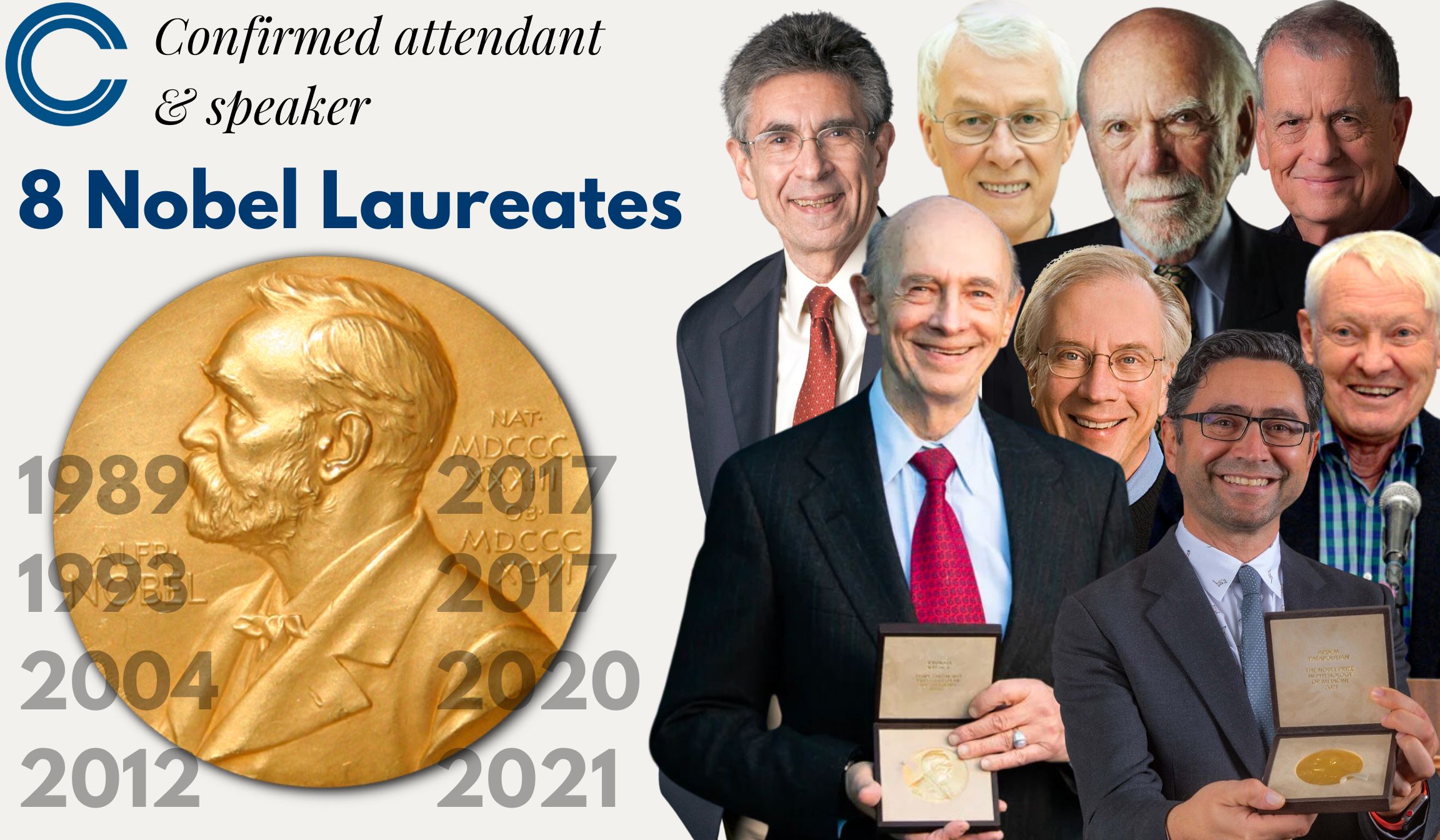
Why has religion remained a force in a secular world?
Professor Commentary:
Arguably, the developed world has become more secular in the last century or so. The influence of Christianity, e.g. has diminished and people’s life worlds are less shaped by faith and allegiance to Churches. Conversely, arguments have persisted that hold that we live in a post-secular world. After all, religion – be it in terms of faith, transcendence, or meaning – may be seen as an alternative to a disenchanted world ruled by entirely profane criteria such as economic rationality, progressivism, or science. Is the revival of religion a pale reminder of a by-gone past or does it provide sources of hope for the future?
‘Religion in the Public Sphere’ by Jürgen Habermas (European Journal of Philosophy, 2006)
In this paper, philosopher Jürgen Habermas discusses the limits of church-state separation, emphasizing the significant contribution of religion to public discourse when translated into publicly accessible reasons.
‘Public Religions in the Modern World’ by José Casanova (University Of Chicago Press, 1994)
Sociologist José Casanova explores the global emergence of public religion, analyzing case studies from Catholicism and Protestantism in Spain, Poland, Brazil, and the USA, challenging traditional theories of secularization.
‘The Power of Religion in the Public Sphere’ by Judith Butler, Jürgen Habermas, Charles Taylor, and Cornel West (Edited by Eduardo Mendieta and Jonathan VanAntwerpen, Columbia University Press, 2011)
This collection features dialogues by prominent intellectuals on the role of religion in the public sphere, examining various approaches and their impacts on cultural, social, and political debates.
‘Rethinking Secularism’ by Craig Calhoun, Mark Juergensmeyer, and Jonathan VanAntwerpen (Oxford University Press, 2011)
An interdisciplinary examination of secularism, this book challenges traditional views, highlighting the complex relationship between religion and secularism in contemporary global politics.
‘God is Back: How the Global Rise of Faith is Changing the World’ by John Micklethwait and Adrian Wooldridge (Penguin, 2010)
Micklethwait and Wooldridge argue for the coexistence of religion and modernity, suggesting that religious beliefs can contribute to a more open, tolerant, and peaceful modern world.
‘Multiculturalism’ by Tariq Modood (Polity Press, 2013)
Sociologist Tariq Modood emphasizes the importance of multiculturalism in integrating diverse identities, particularly in post-immigration contexts, and its role in shaping democratic citizenship.
‘God’s Agents: Biblical Publicity in Contemporary England’ by Matthew Engelke (University of California Press, 2013)
In this ethnographic study, Matthew Engelke explores how a group in England seeks to expand the role of religion in the public sphere, challenging perceptions of religion in post-secular England.

Gene therapy is a medical approach that treats or prevents disease by correcting the underlying genetic problem. Is gene therapy better than traditional medicines? What are the pros and cons of using gene therapy as a medicine? Is gene therapy justifiable?
Especially after Covid-19 mRNA vaccines, gene therapy is getting more and more interesting approach to cure. That’s why that could be interesting to think about. I believe that students will enjoy and learn a lot while they are investigating this topic.

The Hall at King’s College, Cambridge
The Hall was designed by William Wilkins in the 1820s and is considered one of the most magnificent halls of its era. The first High Table dinner in the Hall was held in February 1828, and ever since then, the splendid Hall has been where members of the college eat and where formal dinners have been held for centuries.
The Award Ceremony and Dinner will be held in the Hall in the evening of 30th July, 2024.

Stretching out down to the River Cam, the Back Lawn has one of the most iconic backdrop of King’s College Chapel.
The early evening reception will be hosted on the Back Lawn with the iconic Chapel in the background (weather permitting).

King’s College Chapel
With construction started in 1446 by Henry VI and took over a century to build, King’s College Chapel is one of the most iconic buildings in the world, and is a splendid example of late Gothic architecture.
Attendees are also granted complimentary access to the King’s College Chapel before and during the event.
Confirmed Nobel Laureates


Dr Thomas R. Cech
The nobel prize in chemistry 1989 , for the discovery of catalytic properties of rna.
Thomas Robert Cech is an American chemist who shared the 1989 Nobel Prize in Chemistry with Sidney Altman, for their discovery of the catalytic properties of RNA. Cech discovered that RNA could itself cut strands of RNA, suggesting that life might have started as RNA. He found that RNA can not only transmit instructions, but also that it can speed up the necessary reactions.
He also studied telomeres, and his lab discovered an enzyme, TERT (telomerase reverse transcriptase), which is part of the process of restoring telomeres after they are shortened during cell division.
As president of Howard Hughes Medical Institute, he promoted science education, and he teaches an undergraduate chemistry course at the University of Colorado

Sir Richard J. Roberts
The nobel prize in medicine 1993 .
F or the discovery of split genes
During 1969–1972, Sir Richard J. Roberts did postdoctoral research at Harvard University before moving to Cold Spring Harbor Laboratory, where he was hired by James Dewey Watson, a co-discoverer of the structure of DNA and a fellow Nobel laureate. In this period he also visited the MRC Laboratory of Molecular Biology for the first time, working alongside Fred Sanger. In 1977, he published his discovery of RNA splicing. In 1992, he moved to New England Biolabs. The following year, he shared a Nobel Prize with his former colleague at Cold Spring Harbor Phillip Allen Sharp.
His discovery of the alternative splicing of genes, in particular, has had a profound impact on the study and applications of molecular biology. The realisation that individual genes could exist as separate, disconnected segments within longer strands of DNA first arose in his 1977 study of adenovirus, one of the viruses responsible for causing the common cold. Robert’s research in this field resulted in a fundamental shift in our understanding of genetics, and has led to the discovery of split genes in higher organisms, including human beings.

Dr Aaron Ciechanover
The nobel prize in chemistry 2004 .
F or the discovery of ubiquitin-mediated protein degradation
Aaron Ciechanover is one of Israel’s first Nobel Laureates in science, earning his Nobel Prize in 2004 for his work in ubiquitination. He is honored for playing a central role in the history of Israel and in the history of the Technion – Israel Institute of Technology.
Dr Ciechanover is currently a Technion Distinguished Research Professor in the Ruth and Bruce Rappaport Faculty of Medicine and Research Institute at the Technion. He is a member of the Israel Academy of Sciences and Humanities, the Pontifical Academy of Sciences, the National Academy of Sciences of Ukraine, the Russian Academy of Sciences and is a foreign associate of the United States National Academy of Sciences. In 2008, he was a visiting Distinguished Chair Professor at NCKU, Taiwan. As part of Shenzhen’s 13th Five-Year Plan funding research in emerging technologies and opening “Nobel laureate research labs”, in 2018 he opened the Ciechanover Institute of Precision and Regenerative Medicine at the Chinese University of Hong Kong, Shenzhen campus.

Dr Robert Lefkowitz
The nobel prize in chemistry 2012 .
F or the discovery of G protein-coupled receptors
Robert Joseph Lefkowitz is an American physician (internist and cardiologist) and biochemist. He is best known for his discoveries that reveal the inner workings of an important family G protein-coupled receptors, for which he was awarded the 2012 Nobel Prize for Chemistry with Brian Kobilka. He is currently an Investigator with the Howard Hughes Medical Institute as well as a James B. Duke Professor of Medicine and Professor of Biochemistry and Chemistry at Duke University.
Dr Lefkowitz made a remarkable contribution in the mid-1980s when he and his colleagues cloned the gene first for the β-adrenergic receptor, and then rapidly thereafter, for a total of 8 adrenergic receptors (receptors for adrenaline and noradrenaline). This led to the seminal discovery that all GPCRs (which include the β-adrenergic receptor) have a very similar molecular structure. The structure is defined by an amino acid sequence which weaves its way back and forth across the plasma membrane seven times. Today we know that about 1,000 receptors in the human body belong to this same family. The importance of this is that all of these receptors use the same basic mechanisms so that pharmaceutical researchers now understand how to effectively target the largest receptor family in the human body. Today, as many as 30 to 50 percent of all prescription drugs are designed to “fit” like keys into the similarly structured locks of Dr Lefkowitz’ receptors—everything from anti-histamines to ulcer drugs to beta blockers that help relieve hypertension, angina and coronary disease.
Dr Lefkowitz is among the most highly cited researchers in the fields of biology, biochemistry, pharmacology, toxicology, and clinical medicine according to Thomson-ISI.

Dr Joachim Frank
The nobel prize in chemistry 2017 .
F or developing cryo-electron microscopy
Joachim Frank is a German-American biophysicist at Columbia University and a Nobel laureate. He is regarded as the founder of single-particle cryo-electron microscopy (cryo-EM), for which he shared the Nobel Prize in Chemistry in 2017 with Jacques Dubochet and Richard Henderson. He also made significant contributions to structure and function of the ribosome from bacteria and eukaryotes.
In 1975, Dr Frank was offered a position of senior research scientist in the Division of Laboratories and Research (now Wadsworth Center), New York State Department of Health,where he started working on single-particle approaches in electron microscopy. In 1985 he was appointed associate and then (1986) full professor at the newly formed Department of Biomedical Sciences of the University at Albany, State University of New York. In 1987 and 1994, he went on sabbaticals in Europe, one to work with Richard Henderson, Laboratory of Molecular Biology Medical Research Council in Cambridge and the other as a Humboldt Research Award winner with Kenneth C. Holmes, Max Planck Institute for Medical Research in Heidelberg. In 1998, Dr Frank was appointed investigator of the Howard Hughes Medical Institute (HHMI). Since 2003 he was also lecturer at Columbia University, and he joined Columbia University in 2008 as professor of Biochemistry and Molecular Biophysics and of biological sciences.

Dr Barry C. Barish
The nobel prize in physics 2017 .
For the decisive contributions to the detection of gravitational waves
Dr Barry Clark Barish is an American experimental physicist and Nobel Laureate. He is a Linde Professor of Physics, emeritus at California Institute of Technology and a leading expert on gravitational waves.
In 2017, Barish was awarded the Nobel Prize in Physics along with Rainer Weiss and Kip Thorne “for decisive contributions to the LIGO detector and the observation of gravitational waves”. He said, “I didn’t know if I would succeed. I was afraid I would fail, but because I tried, I had a breakthrough.”
In 2018, he joined the faculty at University of California, Riverside, becoming the university’s second Nobel Prize winner on the faculty.
In the fall of 2023, he joined Stony Brook University as the inaugural President’s Distinguished Endowed Chair in Physics.
In 2023, Dr Barish was awarded the National Medal of Science by President Biden in a White House ceremony.

Dr Harvey J. Alter
The nobel prize in medicine 2020 .
For the discovery of Hepatitis C virus
Dr Harvey J. Alter is an American medical researcher, virologist, physician and Nobel Prize laureate, who is best known for his work that led to the discovery of the hepatitis C virus. Alter is the former chief of the infectious disease section and the associate director for research of the Department of Transfusion Medicine at the Warren Grant Magnuson Clinical Center in the National Institutes of Health (NIH) in Bethesda, Maryland. In the mid-1970s, Alter and his research team demonstrated that most post-transfusion hepatitis cases were not due to hepatitis A or hepatitis B viruses. Working independently, Alter and Edward Tabor, a scientist at the U.S. Food and Drug Administration, proved through transmission studies in chimpanzees that a new form of hepatitis, initially called “non-A, non-B hepatitis” caused the infections, and that the causative agent was probably a virus. This work eventually led to the discovery of the hepatitis C virus in 1988, for which he shared the Nobel Prize in Physiology or Medicine in 2020 along with Michael Houghton and Charles M. Rice.
Dr Alter has received recognition for the research leading to the discovery of the virus that causes hepatitis C. He was awarded the Distinguished Service Medal, the highest award conferred to civilians in United States government public health service, and the 2000 Albert Lasker Award for Clinical Medical Research.

Dr Ardem Patapoutian
The nobel prize in medicine 2021 .
For discovering how pressure is translated into nerve impulses
Dr Ardem Patapoutian is an Lebanese-American molecular biologist, neuroscientist, and Nobel Prize laureate of Armenian descent. He is known for his work in characterising the PIEZO1, PIEZO2, and TRPM8 receptors that detect pressure, menthol, and temperature. Dr Patapoutian is a neuroscience professor and Howard Hughes Medical Institute investigator at Scripps Research in La Jolla, California. In 2021, he won the Nobel Prize in Physiology or Medicine jointly with David Julius.
Frequently Asked Questions
Why should I participate in the Re:think essay competition?
The Re:think Essay competition is meant to serve as fertile ground for honing writing skills, fostering critical thinking, and refining communication abilities. Winning or participating in reputable contests can lead to recognition, awards, scholarships, or even publication opportunities, elevating your academic profile for college applications and future endeavours. Moreover, these competitions facilitate intellectual growth by encouraging exploration of diverse topics, while also providing networking opportunities and exposure to peers, educators, and professionals. Beyond accolades, they instil confidence, prepare for higher education demands, and often allow you to contribute meaningfully to societal conversations or causes, making an impact with your ideas.
Who is eligible to enter the Re:think essay competition?
As long as you’re currently attending high school, regardless of your location or background, you’re eligible to participate. We welcome students from diverse educational settings worldwide to contribute their unique perspectives to the competition.
Is there any entry fee for the competition?
There is no entry fee for the competition. Waiving the entry fee for our essay competition demonstrates CCIR’s dedication to equity. CCIR believes everyone should have an equal chance to participate and showcase their talents, regardless of financial circumstances. Removing this barrier ensures a diverse pool of participants and emphasises merit and creativity over economic capacity, fostering a fair and inclusive environment for all contributors.
Subscribe for Competition Updates
If you are interested to receive latest information and updates of this year’s competition, please sign up here.

Essay COMPETITION
2024 global essay prize.
The John Locke Institute encourages young people to cultivate the characteristics that turn good students into great writers: independent thought, depth of knowledge, clear reasoning, critical analysis and persuasive style. Our Essay Competition invites students to explore a wide range of challenging and interesting questions beyond the confines of the school curriculum.
Entering an essay in our competition can build knowledge, and refine skills of argumentation. It also gives students the chance to have their work assessed by experts. All of our essay prizes are judged by a panel of senior academics drawn from leading universities including Oxford and Princeton, under the leadership of the Chairman of Examiners, former Cambridge philosopher, Dr Jamie Whyte.
The judges will choose their favourite essay from each of seven subject categories - Philosophy, Politics, Economics, History, Psychology, Theology and Law - and then select the winner of the Grand Prize for the best entry in any subject. There is also a separate prize awarded for the best essay in the junior category, for under 15s.
Q1. Do we have any good reasons to trust our moral intuition?
Q2. Do girls have a (moral) right to compete in sporting contests that exclude boys?
Q3. Should I be held responsible for what I believe?

Q1. Is there such a thing as too much democracy?
Q2. Is peace in the West Bank and the Gaza Strip possible?
Q3. When is compliance complicity?
Q1. What is the optimal global population?
Q2. Accurate news reporting is a public good. Does it follow that news agencies should be funded from taxation?
Q3. Do successful business people benefit others when making their money, when spending it, both, or neither?

Q1. Why was sustained economic growth so rare before the later 18th century and why did this change?
Q2. Has music ever significantly changed the course of history?
Q3. Why do civilisations collapse? Is our civilisation in danger?
Q1. When, if ever, should a company be permitted to refuse to do business with a person because of that person’s public statements?
Q2. In the last five years British police have arrested several thousand people for things they posted on social media. Is the UK becoming a police state?
Q3. Your parents say that 11pm is your bedtime. But they don’t punish you if you don’t go to bed by 11pm. Is 11pm really your bedtime?

Q1. According to a study by four British universities, for each 16-point increase in IQ, the likelihood of getting married increases by 35% for a man but decreases by 40% for a woman. Why?
Q2. There is an unprecedented epidemic of depression and anxiety among young people. Can we fix this? How?
Q3. What is the difference between a psychiatric illness and a character flaw?
Q1. “I am not religious, but I am spiritual.” What could the speaker mean by “spiritual”?
Q2. Is it reasonable to thank God for protection from some natural harm if He is responsible for causing the harm?
Q3. Does God reward those who believe in him? If so, why?

JUNIOR prize
Q1. Does winning a free and fair election automatically confer a mandate for governing?
Q2. Has the anti-racism movement reduced racism?
Q3. Is there life after death?
Q4. How did it happen that governments came to own and run most high schools, while leaving food production to private enterprise?
Q5. When will advancing technology make most of us unemployable? What should we do about this?
Q6. Should we trust fourteen-year-olds to make decisions about their own bodies?
ENTRY REQUIREMENTS & FURTHER DETAILS
Please read the following carefully.
Entry to the John Locke Institute Essay Competition 2024 is open to students from any country.
Registration
Only candidates who registered before the registration deadline of Friday, 31 May 2024 may enter this year's competition.
All entries must be submitted by 11.59 pm BST on the submission deadline: Sunday, 30 June 2024 . Candidates must be eighteen years old, or younger, on that date. (Candidates for the Junior Prize must be fourteen years old, or younger, on that date.)
Entry is free.
Each essay must address only one of the questions in your chosen subject category, and must not exceed 2000 words (not counting diagrams, tables of data, endnotes, bibliography or authorship declaration).
The filename of your pdf must be in this format: FirstName-LastName-Category-QuestionNumber.pdf; so, for instance, Alexander Popham would submit his answer to question 2 in the Psychology category with the following file name:
Alexander-Popham-Psychology-2.pdf
Essays with filenames which are not in this format will be rejected.
The candidate's name should NOT appear within the document itself.
Candidates should NOT add footnotes. They may, however, add endnotes and/or a Bibliography that is clearly titled as such.
Each candidate will be required to provide the email address of an academic referee who is familiar with the candidate's written academic work. This should be a school teacher, if possible, or another responsible adult who is not a relation of the candidate. The John Locke Institute will email referees to verify that the essays submitted are indeed the original work of the candidates.
Submissions may be made as soon as registration opens in April. We recommend that you submit your essay well in advance of th e deadline to avoid any last-minute complications.
Acceptance of your essay depends on your granting us permission to use your data for the purposes of receiving and processing your entry as well as communicating with you about the Awards Ceremony Dinner, the academic conference for essay competition finalists, and other events and programmes of the John Locke Institute and its associated entities.
Late entries
If for any reason you miss the 30 June deadline you will have an opportunity to make a late entry, under two conditions:
a) A late entry fee of 20.00 USD must be paid by credit card within twenty-four hours of the original deadline; and
b) Your essay must be submitted before 11.59 pm BST on Wednesday, 10 July 2024.
To pay for late entry, a registrant need only log into his or her account, select the relevant option and provide the requested payment information.
Our grading system is proprietary. Essayists may be asked to discuss their entry with a member of the John Locke Institute’s faculty. We use various means to identify plagiarism, contract cheating, the use of AI and other forms of fraud . Our determinations in all such matters are final.
Essays will be judged on knowledge and understanding of the relevant material, the competent use of evidence, quality of argumentation, originality, structure, writing style and persuasive force. The very best essays are likely to be those which would be capable of changing somebody's mind. Essays which ignore or fail to address the strongest objections and counter-arguments are unlikely to be successful .
Candidates are advised to answer the question as precisely and directly as possible.
The writers of the best essays will receive a commendation and be shortlisted for a prize. Writers of shortlisted essays will be notified by 11.59 pm BST on Wednesday, 31 July. They will also be invited to London for an invitation-only academic conference and awards dinner in September, where the prize-winners will be announced. Unlike the competition itself, the academic conference and awards dinner are not free. Please be aware that n obody is required to attend either the academic conference or the prize ceremony. You can win a prize without travelling to London.
All short-listed candidates, including prize-winners, will be able to download eCertificates that acknowledge their achievement. If you win First, Second or Third Prize, and you travel to London for the ceremony, you will receive a signed certificate.
There is a prize for the best essay in each category. The prize for each winner of a subject category, and the winner of the Junior category, is a scholarship worth US$2000 towards the cost of attending any John Locke Institute programme, and the essays will be published on the Institute's website. Prize-giving ceremonies will take place in London, at which winners and runners-up will be able to meet some of the judges and other faculty members of the John Locke Institute. Family, friends, and teachers are also welcome.
The candidate who submits the best essay overall will be awarded an honorary John Locke Institute Junior Fellowship, which comes with a US$10,000 scholarship to attend one or more of our summer schools and/or visiting scholars programmes.
The judges' decisions are final, and no correspondence will be entered into.
R egistration opens: 1 April, 2024.
Registration deadline: 31 May, 2024. (Registration is required by this date for subsequent submission.)
Submission deadline: 30 June, 2024.
Late entry deadline: 10 July, 2024. (Late entries are subject to a 20.00 USD charge, payable by 1 July.)
Notification of short-listed essayists: 31 July, 2024.
Academic conference: 20 - 22 September, 2024.
Awards dinner: 21 September, 2024.
Any queries regarding the essay competition should be sent to [email protected] . Please be aware that, due to the large volume of correspondence we receive, we cannot guarantee to answer every query. In particular, regrettably, we are unable to respond to questions whose answers can be found on our website.
If you would like to receive helpful tips from our examiners about what makes for a winning essay or reminders of upcoming key dates for the 2024 essay competition, please provide your email here to be added to our contact list. .
Thanks for subscribing!

The John Locke Institute's Global Essay Prize is acknowledged as the world's most prestigious essay competition.
We welcome tens of thousands of submissions from ambitious students in more than 150 countries, and our examiners - including distinguished philosophers, political scientists, economists, historians, psychologists, theologians, and legal scholars - read and carefully assess every entry.
I encourage you to register for this competition, not only for the hope of winning a prize or commendation, and not only for the chance to join the very best contestants at our academic conference and gala ceremony in London, but equally for the opportunity to engage in the serious scholarly enterprise of researching, reflecting on, writing about, and editing an answer to one of the important and provocative questions in this year's Global Essay Prize.
We believe that the skills you will acquire in the process will make you a better thinker and a more effective advocate for the ideas that matter most to you.
I hope to see you in September!
Best wishes,
Jamie Whyte, Ph.D. (C ANTAB )
Chairman of Examiners
March 6 A Growing Crisis
March 4 Digital Minimalism
February 26 Titan: A Strange Yet Wonderful Moon
- Close Menu Search
- Entertainment
- Culture & World News
- Literature, Language & Communication
- Special Edition
- CGA Press Polls
- CGA Student Life
- The Guest Column
- Economicry Blog

The CGA Press
School News
The Harvard Crimson Global Essay Competition 2022
La Le Quynh Anh , Reporter | November 26, 2021
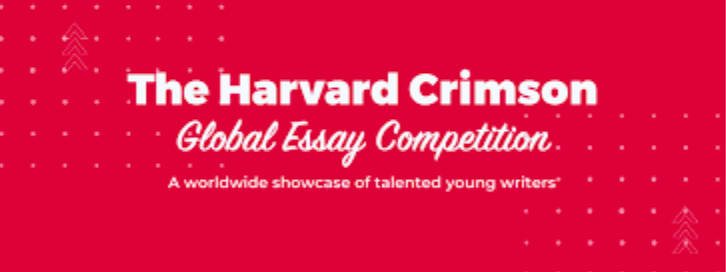
Are you looking for another achievement to list in your resume? Are you an avid writer who is looking for an opportunity to showcase your writing skills? Then, Crimson Global Academy has just the right event for you!
Recently, there was an email sent to every student at CGA, informing about the Harvard Crimson Global Essay Competition (HCGEC) 2022. With the partnership between CGA and the Harvard Crimson, one of the most prestigious international writing competitions for students aged 13 to 18 was created. It not only provides students with a fair chance to compete with other students around the world but also to develop their critical thinking.
Winning this competition means that you will win a Harvard Crimson Internship along with a Letter of Recommendation. Not to mention, you will be recognized as a top writer as your essay will be published on the official competition’s website, which is endorsed by the Harvard Crimson. You will also get access to exclusive first-class education and career-driven webinars by world professionals in a number of fields. There are also additional prices that could be worth up to as much as US $5000 in cash and another US $5000 in Crimson mentorship credit.
You will have 2 different categories to choose from: creative and persuasive. The final date to submit your essay for the regional round is on January 30th, 2022. The most excellent 5 participants from each category will then compete in the global finals where they will further develop their essays and compete with each other for the grand prizes that were mentioned above.
You are probably thinking that you absolutely cannot afford to miss this opportunity, right? Sign up for it right now and get a 50% off of the registration fee, having only to pay US $7.50. Please note that the final deadline for an early bird is on December 15th, 2021. Following that, from December 16th to January 19th, the regular registration fee will cost you US 15$.
You can sign up for the competition through this link . Attached are also the HCGEC 2022 invitation handbook and a one-page guide that includes everything you need to know about the competition. Welp, see you at the competition then!
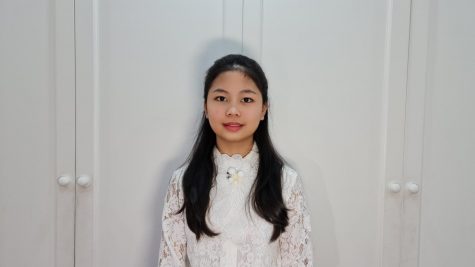
Digital Minimalism
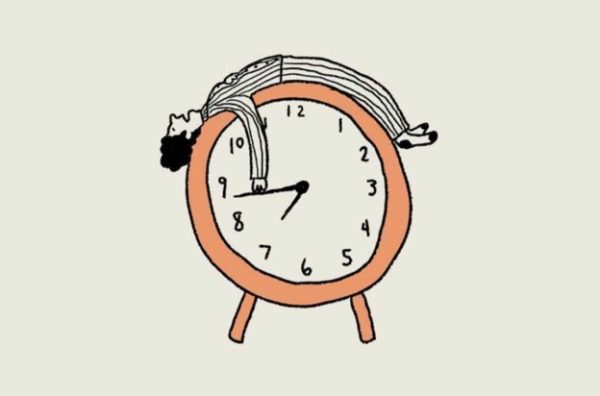
The Psychology of Procrastination
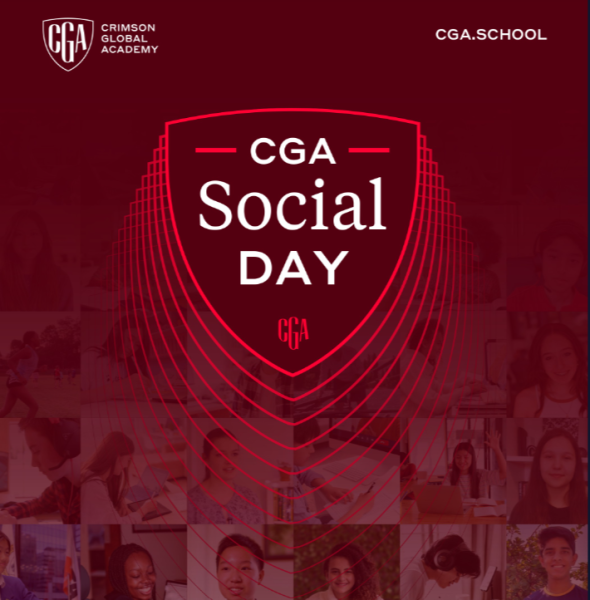
Calling All CGA Students: Epic Meet-Ups Ahead!

The Art of Time Management

Subjects and Subjects and Subjects: A School Interview

CGA’s 2nd Art Competition
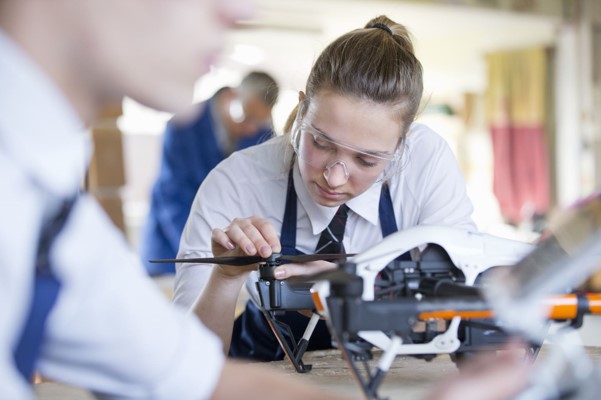
Extracurriculars: Do they make or break your GPA?
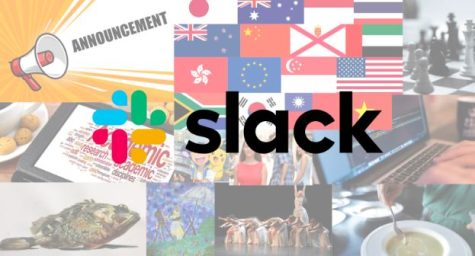
Slack Channels at CGA
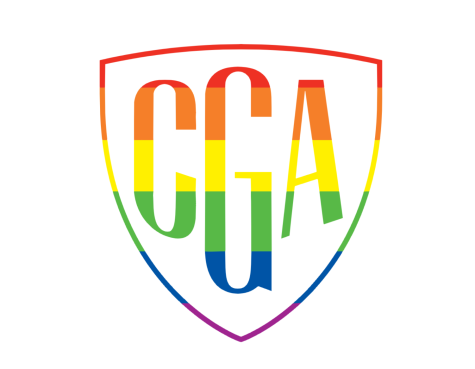
Introducing CGA’s New Gender-Sexuality Alliance
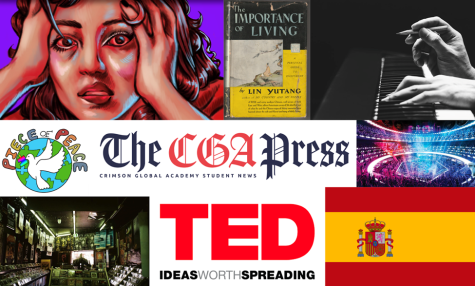
Student-led Clubs at CGA
Comments (1)
Cancel reply
Your email address will not be published. Required fields are marked *
Karin Rezkalla • Nov 26, 2021 at 2:28 pm
Email me at: [email protected] for a discount code that will grant you a further 30% off, bringing the cost down to US$5!!!

Protecting Confidentiality in the Digital Ecosystem of Humanitarian Aid
Article sidebar.

Main Article Content
Photo by AbsolutVision on Unsplash
INTRODUCTION
Social media, news headlines, and podcasts implicitly and explicitly remind us of the digital misinformation maelstrom we navigate every day to understand the truth of current events. Misinformation feeds off the topics that impact our lives and draw our attention – war, health, politics, identity, fear, and empathy. Misinformation has a digital reach faster and wider than true information based on its nature of novelty and emotional instigation. [1] It draws from data leakages, twists the truth, incites emotional responses, and can undermine real efforts to protect and aid vulnerable communities. Many of the places and events targeted by misinformation are sites of humanitarian crises such as Gaza, Yamen, and Ukraine among many others. Humanitarian groups conceived to provide relief to vulnerable communities are susceptible to personal harm and impeded aid because the organizational structure is not equipped for misinformation and data security breaches. While propaganda and misinformation did not emerge in the contemporary, their scope, speed, and impact have exponentially increased as the world’s use of digital media for communication developed. The current state of misinformation and data leakages are threats to humanitarian efforts, especially the vital and nuanced task of humanitarian medical aid that now simultaneously relies on the digital information ecosystem.
Humanitarian efforts center on the four main principles of humanity, neutrality, impartiality, and operational independence. The United Nations Refugee Agency specifies that ‘humanity’ refers to addressing human suffering wherever it is found to ensure health and respect, ‘neutrality’ is to not engage in political, racial, religious, or ideological controversies, ‘impartiality’ is to provide aid based on need alone without bias and priority, and ‘operational independence’ is to conduct aid autonomous from agendas or actors in sectors such as political, economic, or military. [2] Medecins Sans Frontieres explicitly states neutrality, impartiality, independence, bearing witness, and accountability in their code of principles. Their statement on medical ethics is much more vague. It aims to “carry out our work with respect for the rules of medical ethics, in particular the duty to provide care without causing harm to individuals or groups. We respect patients’ autonomy, patient confidentiality, and their right to informed consent.” [3] Confidentiality is mentioned, but in the nondescript sense that could refer to confidentiality outlined in any number of medical ethics contexts.
Three most commonly referred to ethical codes in Western medicine are the Declaration of Helsinki, the Belmont Report, and the Code of the American Medical Association (AMA). The Declaration of Helsinki places confidentiality in the context of research and was written pre-digital age in the 1960s. [4] The Belmont Report does not mention confidentiality or patient privacy in its summation of medical ethics from 1978. [5] Lastly, the AMA’s Code of Medical Principles upholds that physicians “shall respect the rights of patients, colleagues, and other health professionals, and shall safeguard patient confidences and privacy within the constraints of the law.” [6] This AMA principle was adopted in 1957 and revised in 2001, still before the onset of widely accessible digital media. These three medical ethics codes are the standard of Western medicine, and yet they are decades obsolete when facing the harm of digital misinformation and data leakages. Humanitarian aid organizations cannot afford to rely on outdated medical ethical codes amid digital misinformation and data leakages.
Medical humanitarian relief groups such as Medecins Sans Frontiers, the International Medical Corps, the WHO Global Health and Peace Initiative, and the International Committee of the Red Cross, rely on the medical ethics defined in the aforementioned guides in addition to their humanitarian foundation. These codes, while useful, were written prior to the digital age. And, as our methods of communication, medical delivery, and global action have evolved and digitized, the ethics guiding medical practice should be updated to reflect this dramatic change. Humanitarian medical organizations need the digital ecosystem to store metadata for medical services such as patient history, blood type, metrics on locations in need of aid, missing person searches, and funding. The levels of data vulnerable to misconstruction and hacking exist on the personal and organizational levels. Individual providers and the organizational body should prioritize confidentiality. Thus humanitarian medical ethics should adapt to the reality of the digital age to not endanger the populations receiving aid and to not propagate harm.
Misinformation and data leakage can lead to microtargeting, defamation, provider endangerment, and other harms preventing medical service. The European Data Protection Supervisor details how the personal information collected by organizations, such as medical, can be stolen or misconstrued to affect microtargeting, placing individuals in the direct path of echo chambers, digital tracking, and manipulation. [7] The International Broadcasting Trust released a report in 2018 detailing the extent to which misinformation was impacting the humanitarian aid groups it broadcasts to. [8] For example, the report shared that rumors spread by right-wing political groups in 2017 falsely circulated that humanitarian groups in the Mediterranean were collaborating with child trafficking rings. [9] After causing defamation, the right-wing group sent a boat to block and detain the humanitarian group’s search and rescue boat. This was one incident among many where providers and patients were put in harm’s way through misinformation and the misuse of location data. Other disinformation campaigns can be carried out by governments as well; in Syria and Ukraine, the Russian government has been specifically targeting Red ross and White Helmets. [10] Beneficial medical services cannot be delivered if providers and patients are targeted. In January of 2022, the International Association of the Red Cross was hacked. Approximately 515,000 vulnerable persons’ data was leaked and became inaccessible to the IARC providers. [11] If an organization cannot protect access to its digital ecosystem, humanitarian medical aid efforts can be rendered ineffective.
Additionally, misinformation and breached data cause the less immediate but more widely impactful harm of distrust. Stakeholders and funding sources can withdraw from supporting medical humanitarian aid organizations. Beneficial medical services cannot be offered if there is no monetary backing. Providers and patients also have their own digital devices and means of communication which can lead to sensitive information being shared online or with non-neutral parties. If a patient cannot trust their provider or the organization a provider acts in the name of, medical services can be refused. Beneficial medical service cannot be conducted if the trust of the patient is compromised by humanitarian groups failing to prioritize patient confidentiality. Confidentiality should be prioritized in humanitarian medical aid to safeguard against the extended harms of data leakage, misinformation, and malintent.
Some critiques may postulate that due to the uniqueness of each community aided by medical humanitarian organizations, over-standardization from rigid ethical codes may occur, that standardization can lead to inflexibility with communities and render aid strategies ineffective. However, the reality is that ethical frameworks make sure that individual actors are not monolithic – they allow for collaboration and joint work. The WHO Global Health and Peace Initiative’s recent adoption of conflict sensitivity, along with other organizations’ additions of similar language, ensure that there is a feedback loop incorporated into the ethical code to mitigate unintended harm. Thus, ethical codes are helping providers to respond in unprecedented situations with consciousness to harm propagation. In events of limited time and of crisis, comprehensive ethical codes are especially beneficial because we rely on habits and pre-established information banks.
Humanitarian medical ethics should include a specific guide for confidentiality. Without forethought and the integration of traditional and digital confidentiality as a main tenant, medical humanitarian organizations will continue to act retrospectively. Trust in stakeholder-provider-patient relationships will continue to disintegrate. The current status quo of medical ethics in the humanitarian aid sector poses multiple risks for providers and patients whereas adopting stronger confidentiality language is a tangible step towards the protection of vulnerable communities from the harms of digital misinformation and data leakage.
[1] Vosoughi, Soroush, Deb Roy, and Sinan Aral. “The Spread of True and False News Online.” Science 359, no. 6380 (2018): 1146–51. https://doi.org/10.1126/science.aap9559 .
[2] “Conflict Sensitivity and the Centrality of Protection.” The Global Portection Cluster , March 2022. https://www.globalprotectioncluster.org/sites/default/files/2023-03/220318_gpc_-_conflict_sens.pdf .
[3] “Our Charter and Principles.” MEDECINS SANS FRONTIERES - MIDDLE EAST. Accessed December 24, 2023. https://www.msf-me.org/about-us/principles/our-charter-and-principles#:~:text=We%20give%20priority%20to%20those,of%20governments%20or%20warring%20parties.&text=The%20principles%20of%20impartiality%20and%20neutrality%20are%20not%20synonymous%20with%20silence .
[4] “WMA - The World Medical Association-WMA Declaration of Helsinki – Ethical Principles for Medical Research Involving Human Subjects.” The World Medical Association. Accessed December 24, 2023. https://www.wma.net/policies-post/wma-declaration-of-helsinki-ethical-principles-for-medical-research-involving-human-subjects/ .
[5] Office for Human Research Protections (OHRP). “ The Belmont Report.” United States Department of Health and Human Services , September 27, 2022. https://www.hhs.gov/ohrp/regulations-and-policy/belmont-report/read-the-belmont-report/index.html .
[6] American Medical Association . “The Code .” AMA principles of Medical Ethics. Accessed December 24, 2023. https://code-medical-ethics.ama-assn.org/principles .
[7] “EDPS Opinion on Online Manipulation and Personal Data .” European Data Protection Supervisor. Accessed December 24, 2023. https://edps.europa.eu/sites/edp/files/publication/18-03-19_online_manipulation_en.pdf .
[8] Robin. “Faking It: Fake News and How It Impacts on the Charity Sector.” International Broadcasting Trust, March 13, 2020. https://www.ibt.org.uk/reports/faking-it/ .
[9] Reed, B. “Charities Colluding with Traffickers? Fake News.” The Guardian, February 15, 2018. https://www.theguardian.com/global-development/2018/feb/15/charities-aid-agencies-fake-news-says-report .
[10] Sant, Shannon Van. “Russian Propaganda Is Targeting Aid Workers.” Foreign Policy, August 1, 2022. https://foreignpolicy.com/2022/08/01/russia-disinformation-ukraine-syria-humanitarian-aid-workers/ .
[11] International Committee of the Red Cross. “Hacking the Data of the World’s Most Vulnerable Is an Outrage.” International Committee of the Red Cross, October 27, 2022. https://www.icrc.org/en/document/hacking-data-outrage .
Editor’s pick in Voices in Bioethics' 2023 persuasive essay contest.
Disclaimer: These essays are submissions for the 2023 essay contest and have not undergone peer review or editing.
Article Details

This work is licensed under a Creative Commons Attribution 4.0 International License .

IMAGES
VIDEO
COMMENTS
'Transcending Ideas ' is a global essay competition open to students from any country. Cambridge Centre for the Integration of Science, Technology and Culture (CCISTC) provides the academic support and work with regional partners to welcome students across the world to demonstrate, develop and contribute their critical thinking in some of the most challenging topics the human beings are ...
CCISTC Transcending Ideas Global Essay Competition 2023 Theme : Past and Future 'Transcending Ideas' is a global essay competition open to students from any country. Cambridge ... 2022 APR 16 2023 MAY 08 2023 KEY DATES REGISTRATION OPEN SUBMISSION DEADLINE PARTICIPANTS ANNOUCEME MAY 15-21 ONLINE FINALS 2023 MAY 2023 JUL AUG
Competition Key Dates: 18th Nov 2022: Registration open 16th April 2023: Submission deadline 8th May 2023: Announcement of the finalists 15th-21 May 2023: Online finals, in which the finalists will be required to deliver a presentation about their essay to the judge 26th May 2023: Announcement of the prize winners July-August 2023: Award Ceremony held in Cambridge, date to be confirmed
The organiser, CCISTC, has held the '2022 "Transcending Ideas" Global Essay Competition' award ceremony in Macao region which was co-organised by the IFTM at the Grand Hall of IFTM Mong-Há Campus on 12 November, 2022. Nearly 300 high school students were attracted and took part in the competition globally.
Global Essay Competition Compete in our Global Essay Competition and qualify for participation as a Leader of Tomorrow in the world's premier opportunity forcross-generational debates: The St. Gallen Symposium. Meet 300 of society's brightest young minds. Present and debate your ideas with 600 senior leaders. Be inspired by some of the world'smost impressive speakers. Gain […]
About Press Copyright Contact us Creators Advertise Developers Terms Privacy Policy & Safety How YouTube works Test new features NFL Sunday Ticket Press Copyright ...
The Harvard Crimson Global Essay Competition provides a platform for young, ambitious high school students to exercise their writing skills and compete with students from all over the world! This competition encourages students to challenge themselves and explore different writing styles to ultimately strengthen their writing skills.
THOUGHT PROVOKING IDEAS OF THE GLOBAL ESSAY COMPETITION 2022 Restructured Incentives: How Retirement Pensions can Become a Mechanism to Guide ... Sophie Lara Neuber is one of the top three contributors to this year's Global Essay Competition Award. She studies at University of Cambridge and attended the 51st St. Gallen Symposium as a Leader ...
In 2019, people over the age of 65 accounted for 9.1%. of the global population (United Nations, 2019), but only 7% of global Internet users (Statista, 2019). In popular social media, older people are even more marginalized. In 2021, only 5.2% of Facebook's global users were over age 65 (Statista, 2021).
HCGEC 2022 ESSAY PROMPTS. Participants chose a prompt from one of two categories: creative or argumentative. In response to their selected prompt, participants submitted a 500-word essay (limit) for the regional qualifying competition. The top five creative and top five argumentative essays from each region were invited to the global finals.
Transcending Ideas Global Essay Competition 2023 Following the success of CCISTC Transcending Ideas Global Essay Competition 2022, we are pleased to launch the 2023 competition today. 'Transcending...
An opportunity for young Commonwealth citizens to share their thoughts, ideas and experiences on key global issues and have their hard work and achievement celebrated internationally. The Queen's Commonwealth Essay Competition is the world's oldest international writing competition for schools, proudly delivered by the Royal Commonwealth ...
「2022 'Transcending Ideas' 全球論文競賽」澳門區頒獎典禮暨學術分享會 2022 'Transcending Ideas' Global Essay Competition Award Ceremony and Sharing Session of Macau
Listen to the HCGEC 2021 global champions speak as they talk about their global competition experience, internship with The Harvard Crimson, and much more! This webinar features panellists at the top of their game, discussing what participants can do to win a global competition. Essay Competition Event Calendar.
According to a study by Justin Lim, Kevin Wong, Rosaida Mohd Rasep and Sonia Kumari Selvarajan (2018), wages per worker in the ICT industry has risen proportionately from RM38,274 per annum to RM53097 per annum in 2015 whereas wages of workers in the non-ICT industry only rose by RM6150 in the course of 5 years.
Constantin Prox is one of the top 25 contributors to this year's Global Essay Competition Award. She studies at INSEAD and attended the 51st St. Gallen Symposium as a Leader of Tomorrow. Introduction ... THOUGHT PROVOKING IDEAS OF THE GLOBAL ESSAY COMPETITION 2022 . 2 the variety of situations that people encounter. Long-standing issues of
Deadline: February 1, 2024. Applications are open for the St. Gallen Symposium Global Essay Competition 2024. Compete in the Global Essay Competition and qualify for participation as a Leader of Tomorrow in the world's premier opportunity for cross-generational debates: The St. Gallen Symposium. Meet 300 of society's brightest young minds.
2023년 4월 16일 마감인 글로벌 에세이 대회 소개영상
About the Competition. The spirit of the Re:think essay competition is to encourage critical thinking and exploration of a wide range of thought-provoking and often controversial topics. The competition covers a diverse array of subjects, from historical and present issues to speculative future scenarios. Participants are invited to engage ...
Competition Structure and Dates Prizes Bootcamps ... Winning Essays 2022 Argumentative Winning Essays 2022 Creative Join our Community! Prompts. Prompts 2024 Prompts History ... CONGRATULATIONS TO THE HCGEC 2022 GLOBAL WINNERS! Follow us on social media.
THOUGHT PROVOKING IDEAS OF THE GLOBAL ESSAY COMPETITION 2022 Mitigating The Intergenerational Democratic Deficit: A New Intergenerational Contract In Political Governance. Bryan Kwang Shing Tan is one of the top three contributors to this year's Global Essay Competition Award. He studies at Beijing University and attended the
If for any reason you miss the 30 June deadline you will have an opportunity to make a late entry, under two conditions: a) A late entry fee of 20.00 USD must be paid by credit card within twenty-four hours of the original deadline; and. b) Your essay must be submitted before 11.59 pm BST on Wednesday, 10 July 2024.
Recently, there was an email sent to every student at CGA, informing about the Harvard Crimson Global Essay Competition (HCGEC) 2022. With the partnership between CGA and the Harvard Crimson, one of the most prestigious international writing competitions for students aged 13 to 18 was created. It not only provides students with a fair chance to ...
Voices in Bioethics is currently seeking submissions on philosophical and practical topics, both current and timeless. Papers addressing access to healthcare, the bioethical implications of recent Supreme Court rulings, environmental ethics, data privacy, cybersecurity, law and bioethics, economics and bioethics, reproductive ethics, research ethics, and pediatric bioethics are sought.